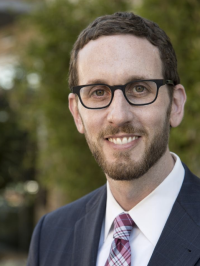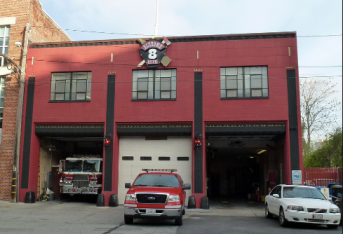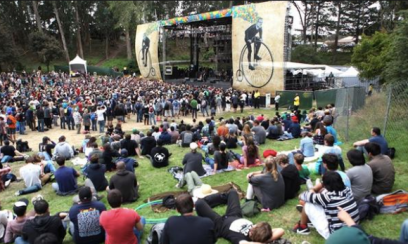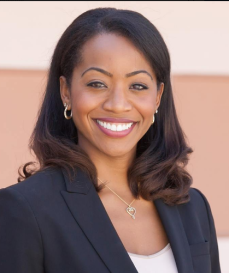There are 25 measures on the SF ballot, which is about 20 too many. If you add the 17 California measures, and a dozen candidate races, that’s 51 separate decisions San Francisco voters have to make in this election! Ridiculous!
And some of the issues are very complicated. How are the voters supposed to understand enough to make informed decisions? This is madness. There are some BFDs on this ballot, with the city facing changes that will make a big difference to its citizens in the coming years.
A lot of this stuff is about the Mayor’s power. He isn’t on the ballot, and hasn’t endorsed any of the measures, but four of them (D, H, L & M) are directly aimed at reducing his power. Many of the 25 measures don’t need to be on the ballot at all, and I call that out in the pages that follow. I’m not sure why, but there seem to be a whole lot of propositions that want to tie the hands of future Boards of Supervisors in how it allocates funding or staffing of government programs. This is silliness if you ask me, and a terrible way to manage the city’s budget and staffing decisions.
And here’s where I admit that I’m not finished with this voter guide. Because it’s so close to Election Day, I’m publishing a mostly complete voter guide with the intention to write more every day to help you make your voting decisions. I start with a summary up top, and then more complete explanations in the pages that follow.
Without further ado, I submit to you my thoughts on the San Francisco ballot. In the interest of full disclosure, I’m a liberal Democrat attorney and a government nerd, whose passions include defending nightlife and culture, getting more women elected to public office, and protecting our environment for future generations. I’ve worked on more political campaigns than I can count, including my own, and I also like long walks on the beach.
For my complete voter guide on the California measures, go here.
For the super simple, easy-to-take-to-the-polls version, go here.
And if you find this guide useful, please make a donation here! Thanks.
US Senator – Kamala Harris
US Congress, District 12 – Nancy Pelosi
US Congress, District 14 – Jackie Speier
State Senate District 11 – Scott Wiener
State Assembly District 17 – David Chiu
State Assembly District 19 – Phil Ting
Superior Court Judge – Paul Henderson
Board of Supervisors, District 1 – Marjan Philhour
Board of Supervisors, District 3 – No recommendation
Board of Supervisors, District 5 – London Breed
Board of Supervisors, District 7 – #1 Ben Matranga, #2 Joel Engardio
Board of Supervisors, District 9 – Joshua Arce
Board of Supervisors, District 11 – Ahsha Safai
BART District 7 – Lateefah Simon
BART District 9 – Gwyneth Borden
Board of Education – Stevon Cook, Matt Haney, Trevor McNeil, Rachel Norton. Honorable mentions: Mark Sanchez, Jill Wynns
City College Board – Amy Bacharach, Alex Randolph, Rafael Mandelman, Tom Temprano. Honorable mention: Shanell Williams
Prop A: School Bond – YES
Prop B: City College Parcel Tax – YES
Prop C: Loans to Finance Acquisition and Rehabilitation of Affordable Housing – YES
Prop D: Vacancy Appointments and Letting Voters Elect District Supervisors – NO
Prop E: Responsibility for the Maintenance of Street Trees – YES
Prop F: Youth Voting in Local Elections – YES
Prop G: Police Oversight and Accountability – YES
Prop H: Independent Public Advocate – NO
Prop I: Funding for Seniors and Adults with Disabilities – NO
Prop J: Funding for Homelessness and Transportation- YES
Prop K: General Sales Tax – YES
Prop L: Balancing MTA Appointments – NO
Prop M: Affordable Housing and Development Commission – NO
Prop N: Non-Citizen Voting in School Board Elections – YES
Prop O: Office Development in Candlestick Point and Hunters Point- YES
Prop P: Bidding Rules for Affordable Housing Projects – NO
Prop Q: Prohibit Tents on Sidewalks – NO
Prop R: Neighborhood Crime Unit- – NO
Prop S: Allocation of Hotel Tax Funds to the Arts & Family Homeless Services – YES
Prop T: Restricting Gifts and Campaign Contributions from Lobbyists – NO
Prop U: Changing Affordable Housing Requirements for Private Developments – NO
Prop V: Tax on sugary beverages – YES
Prop W: Luxury Real Estate Tax to Fund Education – YES
Prop X: Requirements for Changing the Use of Certain Properties – NO
Measure RR: BART Bond – YES
US Senator – Kamala Harris
Attorney General Kamala Harris and Congresswoman Loretta Sanchez are running against each other to replace (my former boss!) Barbara Boxer.
Harris is a personal hero of mine. As the District Attorney of San Francisco and now as Attorney General of California, she has been a powerful advocate for consumers and privacy protections, prisoner anti-recidivism programs, victims of mortgage fraud, and same sex marriage. She also brings a fresh perspective to the office, as she is the first African American, the first Indian American, and the first woman to serve as the state’s top cop.
Sanchez represents a Congressional district in conservative Orange County, which should tell you everything about her politics. She is a Blue Dog Democrat who has voted against important gun control legislation and for the tobacco industry. She is… unpolished, and once made a faux Indian war whoop as she flippantly tried to explain the difference between Native Americans and Americans of Indian descent.
I saw them both speak at the California Democratic Party Convention in February, and the difference between the two was stark. Sanchez’s speech consisted of a list of her accomplishments, and she struck a defensive tone about her conservative votes. By contrast, Kamala was luminous. She had the room on its feet when she talked about the divisive politics running though the Republican presidential contest. What they don’t understand, she said, is that America’s racial and ethnic diversity is its strength. You want to ‘Make America Great Again’?” she asked of Donald Trump and his supporters, “AGAIN FOR WHOM?” Please vote for her. She gives me hope for this country.
US Congress, District 12 – Nancy Pelosi
I teared up when Nancy was sworn in as Speaker and called all of the kids and grandkids in the chambers up to the podium with her. This simple act highlighted the significance of the election of the first mother and grandmother to the most powerful position in Congress.
Every two years I say the same thing: we are lucky to have Nancy Pelosi represent San Francisco. Her accomplishments in three decades in the House of Representatives are far too many to list here. She has stood up for reproductive rights, immigrants, women, LGBT folks and the poor. She fought hard to protect the social safety net when the Republicans in Congress wanted to slash it in 2013 and she helped shepherd Obamacare through the House, which was an incredible achievement in itself. Recently, she has advocated for open military service for transgender folks. If the GOP completely crumbles in this election and large numbers of Republican voters stay home (fingers crossed!), it is not impossible that the Democratic Party takes Congress back in this election, and Pelosi will be Speaker again. Can’t wait to see how it unfolds. Also: watch this interview of Nancy by her daughter, it’s really great.
US Congress, District 14 – Jackie Speier
I have great admiration for Jackie Speier. She is fearless, thoughtful and smart, and she also has a remarkable personal story. In 1978 she was left for dead on a tarmac in Guyana with her boss Congressman Leo Ryan during the airstrip shootings that triggered the massacre at Jonestown. In her extraordinary career in public service, she has championed consumer protections, banking reform, and increasing federal funding to public transit in the Bay Area, particularly to Muni and for the electrification of Caltrain, an important component of the California High-Speed Rail Project. She has been tough on PG&E for the San Bruno explosion, and she has taken on the epidemic of sexual assault on college campuses and in the military. I can’t say enough great things about Jackie! Also: she has no credible opposition.
State Senate District 11 – Scott Wiener
Over the years I have worked closely with Supervisors Jane Kim and Scott Wiener, who are running against each other for Mark Leno’s Senate seat. (Leno is termed out). Both candidates have their merits and I consider them both friends, so it was hard to choose one over the other.
Jane has served on the Board since 2010, and she represents District 6, which is mostly in SOMA and the Tenderloin. Jane’s district has felt real estate development pressure more intensely than most in the last 6 years, and so it’s understandable that her office has been focused on land use and development issues. I like what she has said about gentrification (the Tenderloin doesn’t need more market rate housing, it needs more services for the existing residents), and I think she’s been deft at negotiating with developers. Jane was also the sponsor of the controversial “Twitter tax break” that attracted tech firms like Twitter to the mid-Market area, earning her the scorn of many progressives. It’s interesting to see her now backpedaling on her support of tech companies by opposing the City’s commuter shuttle program, calling Google buses “rolling gated communities.” If you hate the Google buses, Jane is probably your candidate.
I have endorsed Scott because I think he will be a more effective legislator in Sacramento, and he is one of the smartest people I know in city government. He has done more than Jane on the Board of Supervisors to support women and families, including his recent legislation to require SF employers to provide six weeks of paid parental leave. He is a fierce advocate for nightlife and culture, and he will continue Senator Leno’s fight for 4am bar closures in the state legislature. And most important – Scott has done most of the heavy lifting in recent years to improve public transit, to fight for improvements and funding, and he will continue to do so in the State Senate. Senator Leno has endorsed him, and that says a lot to me since he knows the job, he knows both candidates well, and has worked with them both.
AND – just as important to me – Scott is a political nerd of the highest order. He is earnest, prepared, hard working, and focused; these are important qualities in a legislator. Check out his hilarious “Hip to Be Square” ad by MC Hammer and other celebrities.
I urge you to vote for Scott.
State Assembly District 17 – David Chiu
David is a close ally of mine, and he has no credible opposition for his re-election to the State Assembly. In his two years in the state legislature, he has authored 11 bills that have been enacted into law, and he has focused his efforts on affordable housing, supporting women, children and families, standing up for workers and immigrants, improving health care, supporting education, and fixing transportation. Just as important, he is a longtime advocate for car-free living, and every year he rides a Burning Man art car in the San Francisco Pride Parade! Awesome.
State Assembly District 19 – Phil Ting
Even though he and I haven’t always agreed, Phil Ting has my support. He is doing a great job of representing the West side of San Francisco. He currently serves as the chair of the Assembly Budget Committee, and in this capacity he has been instrumental in changing how schools are funded in California through the Local Control Funding Formula. He is a champion of bike safety and incentivizing electric vehicles, and he has also passed through the Assembly one of the most progressive gender-neutral bathroom policies in the country. He is also virtually unopposed. Go Phil!
Superior Court Judge – Paul Henderson
Two smart and competent candidates are running for this judicial seat. Victor Hwang is a civil rights attorney with both criminal and civil law experience who also serves on the San Francisco Police Commission. Paul Henderson is a former Deputy District Attorney who has dedicated his career to public service and currently works in the Mayor’s Office on criminal justice issues.
I am impressed with the number of high powered endorsements that Henderson has been able to earn, and I agree with him that the bench needs to reflect the diversity of the community it serves. Henderson is a black gay man – a constituency that is underrepresented on the bench generally. Given what is happening with the criminal justice system’s unfair treatment of black men nationwide, I think we should put more progressive black men on the bench to help insure that this demographic receives fair treatment from the courts. Vote for Henderson.
Board of Supervisors, District 1 – Marjan Philhour
I adore Marjan, having known her and worked with her for many years. A small business owner and mom of three, she is a straight shooter and has made the Richmond her home for most of her life. She is running on improving neighborhood services, not ideology, which seems to be in line with the priorities of her district. As the Chronicle said in their endorsement of her, “District voters have a chance to put the supervisors on a more practical, problem-solving course. Philhour has the skills and can-do approach to upgrade the area’s voice at City Hall.”
Board of Supervisors, District 3 – No recommendation
Supervisor Peskin is running unopposed in his re-election bid, and yet I am unable to endorse him. In his last race I supported his opponent in part because I was disappointed by Supervisor Peskin’s use of bullying tactics in City Hall, and because he has worked hard to oppose development that I felt would have helped alleviate the San Francisco housing crisis.
Board of Supervisors, District 5 – London Breed
This is the wierdest campaign. A white straight male multi-millionaire (Dean Preston) is running to the left (!) of the black woman incumbent who (is President of the Board of Supervisors and) grew up in the housing projects in the district.
I’m with London because she fights fiercely for her district while wielding a wicked sense of humor. If you’ve been following the Board of Supervisors the last four years, you know that she gives zero fucks. A lifelong rente
r, she has been a tenant advocate on the Board, and also she holds developers accountable. She has also been focused on public safety and transit, succeeding recently in getting more (desperately needed!) trains on the N-Judah line. Her accomplishments are made even more remarkable by her humble upbringing. She deserves a second term.
Board of Supervisors, District 7 – #1 Ben Matranga, #2 Joel Engardio
Supervisor Norman Yee is running for re-election in this district that spans the southwest corner of San Francisco, from Twin Peaks to Lake Merced It’s mostly single family homes out there, and the biggest concerns are property crimes and traffic safety. I like both Ben Matranga and Joel Engardio, who are running to replace Yee. Matranga has experience in both transit policy and public safety, having worked in the Mayor’s office on Vision Zero, the program that aims to eliminate pedestrian fatalities. One significant difference for me: I’m an occasional Airbnb host, and Engardio supports home sharing, while Matranga does not. Engardio is a former journalist and tech worker, and a lifelong public policy nerd, having worked at the ACLU and received his Masters in Public Administration from the Harvard Kennedy School of Government. I worked with Joel on the Democratic County Central Committee, and found him to be a smart, level head. He recognizes that his district needs to participate in alleviating the city’s housing crisis by building taller buildings along transit corridors. As the Chronicle wrote, in their endorsement of Engardio, “The choice comes down to a close call between tech consultant Joel Engardio and financial analyst Ben Matranga.” Either one will do a fine job.
Board of Supervisors, District 9 – Joshua Arce
This is yet another fascinating race that defies the usual left-middle divide in San Francisco.
Hillary Ronen and Josh Arce are the main contenders in this race. They are both public interest attorneys with close ties to immigrant communities. Hillary has served as an aide to Supervisor David Campos in this district, and so she knows the district well. Josh has served as President of the city’s Environment Commission, and his day job is with the Laborers Union, Local 261. Both have fought for rent control and against evictions, and both have shown leadership in pushing the city to build more affordable housing.
The Mission is changing faster than any other neighborhood, and not all of this change is good. Business is booming, but gentrification is happening at a rapid clip, and many of the city’s homeless residents have set up camp there. The district requires leadership that can deftly negotiate with opposing interests: neighborhood merchants, developers, homeless advocates and residents of all stripes.
I served with Josh Arce on the Democratic Party board for the last 4 years, and I have watched with fascination as he walked the tightrope between groups that were at each other’s throats. He is more skilled at diplomacy than most lawmakers I’ve ever met, forging compromise when I didn’t think it was possible. This is why I’m supporting him for Supervisor. He is exactly the person to represent the Mission in this critical moment in its history, with the experience and the temperament to keep the district from tearing itself apart.
Board of Supervisors, District 11 – Ahsha Safai
The two main candidates in D11 are Ahsha Safai and Kim Alvarenga.
Kim and Ahsha have similar backgrounds, in that they have each worked in government and now work for labor unions. Kim was District Director for Assembly member Tom Ammiano, and now she is the political director for SEIU Local 1021, the city’s fiercest progressive labor union. Ahsha has worked in the city’s Housing Authority, the Mayor’s Office of Community Development, and the Department of Public Works, and he currently serves as political director for the local janitors union.
If you didn’t know anything about how government works, you’d see their two platforms, and you’d be wondering why they are running against each other. They are nearly identical: parking and traffic issues, universal preschool (yay!), fixing the homeless problem. But if you look more closely, you’ll see that Ahsha’s platform actually includes ways to solve the problems, rather than just a pie-in-the-sky wish list for all the things that would make the district better. This is the reason why I’m supporting Ahsha. Having worked in city government for many years, he knows exactly where the funding will come from, the departments that will be affected and how to get it done. And if you look at their endorsement lists, you’ll see that Kim is outmatched. Ahsha will be a far more effective advocate for his district.
BART District 7 – Lateefah Simon
If you meet Lateefah in person, you will be charmed by her charisma and her smarts. As a working mother who is also legally blind, she depends on BART to commute to work and pick up her kids. She has an ambitious plan to fix BART and make it a world-class transit system. A lifelong civil rights activist, she is an amazing public speaker and has a bright future in politics. Did I mention she’s a MacArthur genius?
BART Board is just a start for her, I’m sure of it.
BART District 9 – Gwyneth Borden
I am proud to support my good friend Gwyneth Borden for BART Board (District 9) in San Francisco. As the Chronicle said in their endorsement of her: “Gwyneth Borden…was the most impressive of all the candidates we interviewed for the BART board. Her depth of experience in the private and public sectors was evident, as was the commitment to transit of someone who has “chosen to be car-free.” This is Gwyneth’s first run for public
office, and she is fueled by her passion for, and experience in, transit policy. By contrast, her opponent Bevan Dufty is the city’s former homeless czar and a former Supervisor, a career politician who hasn’t had any particular interest in public transportation until now. Vote for Gwyneth!
Board of Education – Stevon Cook, Matt Haney, Trevor McNeil, Rachel Norton
Stevon Cook – Stevon has an inspiring personal story, having pulled himself out of troubled circumstances as a youth being raised by his grandparents, ultimately graduating from Thurgood Marshall High School in the Bayview and going to Williams College. Stevon is passionate about advocating for disadvantaged kids in the public school system, and if you recognize his name it’s because he ran for the school board once before. He has endorsements from across the political spectrum including the Teachers Union, the Chronicle, the SF Democratic Party, the Labor Council, the Firefighters AND Tenants Unions (you don’t see that combo very often) and both LGBT Democratic clubs (also a rare combination). Hoping he wins this time.
Matt Haney – Matt currently serves as the President of the School Board. He is one of the smartest people in local politics, and cares more about education policy than anyone I know. He has a joint JD-MA degree from Stanford in law and education, and his day job is working with Van Jones on criminal justice reform. (RAD!) Literally everybody has endorsed him…as I’ve said before, everybody loves Matt. And so do I! Please vote for him.
Trevor McNeil – There aren’t any current teachers from San Francisco Unified on the school board, and there won’t ever be. The school board oversees the school district and negotiates teacher contracts, and so this would be a direct conflict of interest. This is why it’s important to elect Trevor McNeil – because he brings a very important perspective to the Board of Education, that of a third-generation educator. I worked with him for 6 years on the DCCC. He’s passionate about his students and about education policy, and he works very, very hard. And his daughter Walden is the cutest baby in San Francisco politics.
Rachel Norton – Rachel has been on the school board for 7 years, and has served in its leadership for most of that time. She is whip-smart, level-headed and knowledgeable. She has two kids in public school, one with special needs, and so she’s highly motivated to find workable solutions for students and parents. And she also works very hard; she is particularly good at communicating what she’s doing by way of newsletters and blogs. She also has been endorsed by literally everybody, and she deserves another term.
Honorable mentions: Mark Sanchez, Jill Wynns
City College Board – Amy Bacharach, Alex Randolph, Rafael Mandelman, Tom Temprano
Amy Bacharach – Amy was just elected to an open seat on the college board last year, and I am proud to support her again. She understands the value of community college because it enabled her to get her college degree and ultimately her PhD. She is smart, competent, and willing to make the tough calls, particularly in centralizing decision-making in CCSF’s administration.
Alex Randolph – Alex Randolph was just elected last year to fill an open seat on the College Board, and he is running for a full term. He has credited community college with giving him a leg up, and he is kicking ass in helping solve CCSF’s accreditation and enrollment problems. He wants CCSF to staff up the class registration process, which would help with the dramatic decline in enrollment, and he has also identified several places where CCSF could upgrade the technology it uses, to start solving its problems on a larger scale.
Rafael Mandelman – Rafael is an attorney, a really smart guy, and a progressive leader on both the college board and on the Democratic County Central Committee, where I worked closely with him for 6 years. His leadership over 4 very tumultuous years at the college board has helped restore local control and help city college begin to recover from its accreditation crisis.
Tom Temprano – Tom is the owner of Virgil’s Sea Room and an LGBT activist, and like many of the folks on the board, he credits city college with giving him a leg up. He is not afraid to stand up to the administration, as he has been vocal about CCSF’s spending decisions and its decision to cancel courses earlier than usual this semester. He ran last year unsuccessfully, and I hope he succeeds this time.
Honorable mention: Shanell Williams
Prop A – School Bond – Yes
Yes, another school bond measure (seems like there’s one in every election). This is a $744 million bond, and it requires a 55% majority to pass (huh? Yes. It’s complicated). It will go toward repairing and modernizing school district properties to make seismic upgrades, improve disability access, remove hazardous materials, improve technology, basically any kind of repair or upgrade you can think of.
If you are a homeowner, your property taxes will go up by $10-16 per year for every $100,000 of the original amount you paid for your home. If you don’t own your home, WOHOO! Free school upgrades. Seriously – if you’re a renter, there’s no reason not to vote for this thing. Especially if you have school-age children. As a child-free homeowner, I think that $10-$16 is absolutely worth spending to improve our schools. Our schools are chronically underfunded, and this is a small price to pay.
The Bay Guardian, the Chronicle and the Examiner all agree that Prop A is necessary. According to SPUR, the school district has successfully implemented that last three significant bond measures, with projects that have been completed under budget.
Prop B – City College Parcel Tax- Yes
Another unsexy-but-important measure.
A parcel tax is a kind of property tax that is paid per unit rather than by assessed value (like the school bond in Prop A). Currently, every homeowner pays $79 for every unit he or she owns toward an existing Community College parcel tax. If Prop B passes, it would replace this $79 parcel tax with a $99 tax for the next 15 years. It needs a 2/3 supermajority to pass.
Here’s the inside scoop: salaries for faculty and staff at CCSF have been depressed for years, and the unions have been fighting with the administration to get pay increases. They arrived at a deal this year that hinges upon the passage of this measure, which will increase the salaries of those CCSF workers who make between $60k-$90k per year. (How does anyone survive in this ridiculously expensive city on $60k per year?!)
City College is on its way to recovering from the bad years in the recent past, and it provides critical job training that can’t be found anywhere else. I think it will be totally screwed if this measure doesn’t pass. The Chronicle, the Examiner, the Bay Guardian, and the Bay Area Reporter agree: Yes on B.
Prop C – Loans to Finance Acquisition and Rehabilitation of Affordable Housing
24 years ago, SF voters approved an ordinance authorizing the City to issue up to $350 million in general obligation bonds (loans) to seismically retrofit buildings that were at risk in a big earthquake. Apparently a big chunk of this money ($261 million) hasn’t been used, and so Prop C proposes to use the leftover bond revenues to acquire and rehabilitate run-down housing and make it permanently affordable housing. The funds could also be used for seismic, fire, and health and safety upgrades. It requires a 2/3 supermajority to pass.
This one seems like a no-brainer to me, and there is no organized opposition. It has to be approved by ballot measure because bonds (and any amendments thereto, like this one), have to go to the voters.
Prop D – Vacancy Appointments and Letting Voters Elect District Supervisors – No
The stakes are high in this election. One of two Supervisors – Jane Kim or Scott Wiener – will win Mark Leno’s State Senate seat, thus vacating a seat on the Board of Supervisors. Prop D will determine whether the Mayor will get to appoint the winner’s replacement to the Board, or whether that person will be elected by popular vote. Prop D was put on the ballot by people who support Jane Kim for Senate, and who don’t want her (leftier) seat to be filled with an ally of the Mayor’s.
The way it is now, the Mayor would get to appoint the replacement temporarily, until the next election is held, and that person runs to defend the appointment. Prop D would change it so that the Mayor could only appoint an interim replacement, and a special election would be held if there wasn’t one scheduled. The interim Supervisor would not be permitted to run for the seat.
I think this measure is a First Amendment challenge waiting to happen, but aside from that, I think it’s just a bad idea, and will cost the city a lot of money. If there isn’t already an election scheduled, the city will be forced to hold one, to the tune of at least $340,000 per election (and do we need more elections? No). It doesn’t do much to change the balance of power in City Hall, though it does create this weird caretaker Supervisor position that will probably be hard to fill with competent people. Vote no.
Proposition E: Responsibility for the Maintenance of Street Trees – YES
There is absolutely nothing sexy about street trees. But they can be a huge headache for property owners and for the city when they are not maintained properly. I’ve owned my home since 2001, so I remember the day when the city had responsibility for the (sad little) tree in front of my house. In 2011, with major budget cuts following the Great Recession, the city transferred ownership and responsibility for this tree to me. This was annoying because it cost me a lot of money to remove and replace this (pathetic, sickly) tree when its time had come.
Several Supervisors put Prop E on the ballot to give responsibility for trees back to the city, in response to community uproar. Prop E would guarantee at lease $19 million per year to pay for it, to be covered by a parcel tax based on the frontage size of a lot. So technically I’m still paying for my little tree, but the city is guaranteeing that it is cared for. (Which is a good thing, since not all property owners are as responsible as I am)
On the one hand, as a property owner, my property value is improved by a healthy tree in front of my house, and so I am the most motivated party to take good care of it. But on the other hand, my little tree really should be a city asset, since it benefits everyone, including the birds and the bees and my neighbors, and the dogs who regularly poop on it (Grr). AND it’s important for the City to prioritize growing our tree canopy, which, according to the Examiner, “ranks among the nation’s smallest for an urban area.” After the city shifted responsibility to property owners, we’ve seen much neglect for our city’s street trees. As the Chronicle wrote in its endorsement, there’s really no reason to vote no on this one.
Proposition F: Youth Voting in Local Elections – YES
When I was 16 years old I was already a political nerd, running for student government and reading several newspapers. I would have *died* if they let me vote in local elections…that would have been incredibly empowering and exciting to me.
Of course, very few high school kids are as nerdy as I was. But still – allowing 16- and 17-year-olds to vote is a great idea. These folks drive, work, pay taxes and can be tried as adults in court. They should have the opportunity to influence their government by learning about the issues and exercising the franchise.
Here are some fun facts:
- 21 states allow 17-year-olds to vote in primaries if they will be 18 before the general election.
- Prop F would only apply to U.S. citizens – and there are up to 15,000 kids in this age group in San Francisco. If every one of them registers to vote, they’d constitute 3% of voters in SF.
- Many industrialized countries allow 16- and 17-year-olds to vote.
- Only a quarter of 18-year-olds register to vote in the United States, and most people don’t start voting until their late 20s.
I’m all for getting kids excited about voting and teaching them how to do it while they are still at home. And there’s evidence that voting earlier in life leads to stronger civic engagement throughout a person’s lifetime.
Between the ages of 18 and 22, most of us are in major life transitions – college, work, (partying?), moving out of our parents’ house – and not focused on voting at all. But if we start them early we can hopefully get them into the habit of voting throughout this transition time. Vote yes.
Proposition G: Police Oversight and Accountability – YES
I’ve always wondered why the police oversight agency is called the “Office of Citizen Complaints.” It’s hella vague, and could be confusing to citizens with other kinds of, um, complaints. Prop G would change its name to the Department of Police Accountability (DPA) – which is WAY more accurate. It would give the department more independence by taking its budget approval away from the Police Commission and give the DPA better access to police personnel records and criminal investigation files. It requires an audit of how the Police Department has handled officer misconduct claims and use of force, every two years.
In light of all the troubling activities in the Police Department this year, including fatal shootings of people of color, and racist and homophobic texts among officers, the more independent the DPA gets, the better in my opinion. These folks need the proper resources and records to hold the SFPD accountable and to begin restore the community’s faith in our police force.
Proposition H: Independent Public Advocate – No
District 9 Supervisor David Campos is out of a job. He’s termed out this year, and has written this ballot measure to create a new citywide elected position for himself called Public Advocate. And arguably it would be the most powerful position in City Hall. If Prop H passes, it will give the new position a six-figure salary and a staff of 25 (!) with the powers to audit all other city departments, introduce legislation at the Board of Supervisors, investigate and resolve complaints against the city, issue subpoenas against city departments, and more. The City Controller estimates this new department could cost the city more than $4 million per year.
Like me, you have probably been frustrated with city government before: business licenses, property taxes, parking tickets, you name it. However, creating this new position – which won’t be accountable to any other city office or department – is not the answer to your frustrations. Every function of the public Advocate is duplicative of an existing department, and the measure doesn’t explain how that overlap will be handled. But more important, Prop H essentially creates an anti-Mayor, whose responsibility is to point out the issues in City Hall without any authority or responsibility to fix those problems. In fact, no matter who gets elected to it, the role will surely be used for partisan purposes, making this person’s foes look bad.
Picture it now: Sarah Palin gets elected to Public Advocate in San Francisco, and decides that she’s going to audit every LGBT department head. She investigates their management styles, their budget decisions, anything she wants. No – even better: Public Advocate Sarah Palin wants to run for Mayor next, and she thinks City Attorney Dennis Herrera is her main rival for the position. She can direct all of the resources of a 25-person department to audit the City Attorney’s office to find things to use in the future campaign. That’s just evil…but it’s well within the Public Advocate’s authority, and there’s nothing that can be done about it. A lot of damage can be done in a 4-year term.
Because of this potential for abuse, Prop H will certainly increase public cynicism toward government. And as a politics nerd, that makes me sad. I went into politics to help create solutions, not to use power for political advantage. Which is why I’d rather see a new city position created to SOLVE problems, not exacerbate them. And it’s why I’m voting no on H.
Proposition I: Funding for Seniors and Adults with Disabilities – NO
Oooh, this is a tough one. Seniors, veterans and people with disabilities are often left out of the city’s budget process, and everyone agrees they need more funding for programs that help them live with dignity. Proposition I will create a “Dignity Fund” requiring the city to set aside $38-$71 million per year, for the next 20 years, to support programs for long-term care, food and nutrition, senior centers, among other things.
These are all worthy programs, but set-asides give me hives. It doesn’t matter how good the program is, or how needy the recipients are, this is no way to manage the city’s budget. I am against tying the hands of future legislators to force them to a specific funding level. And – this doesn’t need to be on the ballot! Grrr. Nine of eleven members of the Board of Supervisors voted to put this on the ballot…why don’t they just vote instead to create and fund this program? They can do it without asking the voters to do their job for them. Vote no.
Proposition J: Funding for Homelessness and Transportation – YES
Prop J is about how to spend the money raised by the tax in Prop K. You should probably go read about Prop K first. Go ahead, I’ll wait right here.
OK. So. If Prop K passes, Prop J would put 1/3 of the revenues toward homeless services and 2/3 toward transportation system improvements. In the first twelve months, the city expects these amounts to be about $48 million and $96 million, respectively. That’s a lot of money! And these DO happen to be the most pressing funding issues in SF right now, so, yeah. Let’s do it.
And yes, I know, I know. These are technically set-asides, which I usually vote against because they tie the Board’s hands in future budgeting. BUT – I like Prop J because (1) we are (hopefully) approving the tax (Prop K) at the same time that we are approving where the taxes would go, and so it’s not like we are taking existing revenues and sidetracking them, and (2) the tax measure and the set-asides are separate measures (smart!) so that the voters can approve or reject the set-asides separate from the tax increase.
But here’s the best part – which was written specifically for people like me who hate set-asides – Prop J would adjust the dedicated amounts over time in line with General Fund growth or decline, until the measure sunsets in 2041. So we wouldn’t be locked in to these funding amounts if there’s another Great Recession, for example. Also: the Mayor has the option to nullify the measure if Prop K loses (whew).
Proposition K: General Sales Tax – YES
I love taxes! Just kidding. Sort of.
Prop K proposes a ¾ cent sales tax increase, making the city’s total sales tax 9.25 cents for every dollar spent. Yeah, yeah, sales taxes are regressive, meaning they hurt poor people the most. But hear me out. Here’s why Prop K is a good idea:
- ¼ cent of our current sales tax is ending before this one would begin. So effectively, our sales tax would only increase by half a cent.
- SF’s sales tax is within a half-cent of California’s other big cities: LA, San Jose, Oakland, Long Beach. San Diego and Sacramento are a little lower: 8% and 8.5% respectively.
- If Prop J passes, the revenues would go to homeless programs and transportation, which are also regressive issues in that they affect poor people the most. So there’s that.
The reason why transportation in San Francisco is so frustrating is because of decades of underfunding. During the recession, we put off repairing roadways so that we could keep the parks and other departments open. We also delayed maintenance of MUNI buses and BART trains. Now that the economy has improved, it’s time to reverse these funding decisions. And I don’t need to tell you that the city’s homeless programs need more resources to help get folks off the streets. You probably see it every day in your commute to work. I know I do. It’s heartbreaking.
And even if Prop J fails, I have a feeling the city will spend the money on these two priorities anyway. They just won’t be required to. Yes on K.
Prop L – Balancing MTA Appointments – NO
The SF Municipal Transportation Agency (SFMTA) is the agency that oversees the city’s transportation network, including buses and trains, roadways and parking. Currently, the mayor appoints the seven members of the board of directors, with confirmation by the Board of Supervisors.
Prop L would take three of these appointments away from the Mayor and give them to the Board of Supervisors. The mayor would appoint the remaining 4, but they would still be subject to confirmation by the Board. Prop L would also change how the Board of Supervisors reviews the SFMTA budget, making it so that the Board could reject a budget with only 6 votes instead of 7.
Power grab much?!
Set aside what you think about THIS mayor and THIS Board of Supervisors, because this law would be a permanent change. It would make the SFMTA more political and less independent from the Board. I can picture the SFMTA funding pet projects in certain districts just to earn votes from Supervisors. Ew. Transportation funds should go where they are needed most regardless of which Supervisorial district they are in. The priorities should be improving safety and reliability, NOT politics.
Prop M – Affordable Housing and Development Commission – NO
Prop M is about two city departments: the Mayor’s Office of Housing and Community Development and the Office of Economic and Workforce Development (OEWD). These departments oversee the city’s affordable housing programs, small business assistance, jobs programs, and big projects like the Warriors Arena. Like most city departments, they are currently under the direction of the mayor’s office.
Prop M would establish a new commission to take control of two city departments. The Housing and Development Commission would be made up of seven members, three appointed by the Board of Supervisors, three appointed by the mayor (confirmed by the Board of Supervisors), and one appointed by the controller.
As with Prop L, it seems like a power grab to me. This time, it’s taking power away from the mayor and putting it in the hands of an independent commission that is either appointed or approved by the Board of Supervisors. And just like with Prop L, we should set aside what we think about THIS mayor and THIS Board, because this law would be a permanent change.
I served on the Elections Commission, which oversees the Department of Elections, and so I understand the good and the bad of having independence from the mayor’s office. There are only a few departments with the power to hire and fire their own directors, and these departments usually have critically important reasons to be free from political influence (Ethics, Elections, Police, Building Inspection, for example). The proponents of Prop M haven’t articulated a compelling reason as to why the city’s affordable housing and economic development programs need to be independent from the mayor’s office, other than the authors don’t like the current mayor. And that’s not good enough for me.
In fact, I think removing these departments from the mayor’s office will undermine their authority to folks outside of City Hall. OEWD staff is able to negotiate directly with developers – like those building the Warriors Arena, Candlestick Point, and Treasure Island – because they bring the gravitas of the mayor’s office when they walk into a room. And when you’re up against powerful and moneyed interests, it’s critical to have the heft of Room 200 behind you, to make sure the community gets the concessions that it deserves.
Finally, I think city resources could be better spent somewhere else (like homeless programs?). With every new commission, the city has to hire commission staff, assign a deputy city attorney, dedicate regular meeting space, film the meetings and post them online. The clerk’s office needs to post the commission agendas online and in physical locations, and make sure that the agendas comply with the law. The city already has over 90 boards and commissions. That’s a lot of bureaucracy. Vote no.
Prop N – Non-Citizen Voting in School Board Elections – YES
Prop N will allow non-citizens who are the parents of children in the San Francisco Unified School District to vote in school board elections. This privilege will apply whether the parents are documented or undocumented, and would be in effect for only five years, through 2022.
(Is 2022 only five years away? I’m feeling old all of a sudden)
After five years, the Board of Supervisors could decide whether to extend this voting right. Makes sense to me – if your kid goes to school here, you want to have a say in who sets the policy direction of his or her school. It would increase parent engagement, which would have benefits for both students and the schools.
However, it *might not* be constitutional, and it would probably be complicated to implement. There would have to be a separate balloting process. And if I was undocumented, I’d be worried about the federal government using my voter registration to track me down. But if Prop N passes, the Board of Supervisors will need to work these details out, with the help of the public school parents affected. Worth a shot.
No taxation without representation! Sort of. Vote yes.
Prop O – Office Development in Candlestick Point and Hunters Point – YES
The reason why Prop O is on the ballot is to fix a problem created by another measure passed exactly 30 years ago.
Prop M – approved in 1986 – limits the approval of new office development to 950,000 square feet per year. If the cap is not fully allocated by the Planning Commission in one year, the remaining portions accrue to future years. Until now, the office cap hasn’t been a major limiting factor for new office development. In today’s economic boom, however, the cap is looming over new office projects, as the Planning Department’s permit pipeline exceeds the cap. By a LOT.
In 2008, the voters approved a huge development in the Bayview, which included about 2.15 million square feet of office space, 10,000 new housing units, 885,000 square feet of retail and entertainment uses and 330 acres of parks and open space in the former Hunters Point Shipyard and Candlestick Point. It’s a HUUUGE project that will change the face of the Bayview.
Prop O would exempt this Bayview development from the office cap. By taking the project out of the Prop M calculations, it would enable more of the current backlog in office development to go forward, thus allowing more office space to be added to San Francisco’s tight real estate market and (potentially, hopefully) moderating the price of skyrocketing office rents.
The people who oppose Prop O are the same folks who oppose real estate development generally. I’m supporting Prop O because I think Candlestick Point is a good project, and I voted for it when it came before us as Prop G in 2008. The neighborhood has struggled economically, and this development promises thousands of new jobs, both in construction and operations. Personally, I’d rather see an overall reform or repeal of Prop M, but perhaps that ‘s a bigger undertaking than the authors of Prop O wanted to tackle. Vote yes.
Prop P – Bidding Rules for Affordable Housing Projects – No
Prop P would create a competitive bidding process for affordable housing projects funded by San Francisco on city property. However, it’s unclear what problem Prop. P is trying to solve. And this absolutely doesn’t have to be on the ballot. In fact, it’s exactly the kind of administrative rule that should be decided internally in case it needs to be adjusted over time. As the Chronicle said, “The measure has the potential to stop promising [affordable housing] deals, the last thing San Francisco needs…The guidelines for competitive bidding and income qualifications are better left to a process of legislative hearings, study and political compromise that balances the competing goals and concerns. These are not issues to be settled at the ballot box.” No on P.
Prop Q – Prohibit Tents on Sidewalks – NO
There’s been widespread frustration at a seemingly intractable problem: the tent cities that have gotten so much worse in the last few years. This measure says it will help make the tents go away, by clearing people camped on public sidewalks, so long as they are served with at least 24 hours’ advance notice and offered alternative housing or shelter and homeless services.
But does it actually do that? No. It’s already illegal to put tents on sidewalks, and the city has all the tools it needs to remove them. It would be better if Prop Q created more shelters or housing or services, which is the only way these folks will be able to get off the streets. The cynics in city hall think this measure is about creating a wedge issue in the State Senate race (Jane Kim wants the tents to stay, Scott Wiener wants to see them gone). But the most important reason to vote no is that THERE IS NO REASON WHY THIS NEEDS TO BE ON THE BALLOT. This is an issue that the Board of Supervisors and the Department of Public Health need to tackle without asking the voters to weigh in on it. Vote no.
Prop R – Neighborhood Crime Unit – No
Another good idea…THAT SHOULDN’T BE ON THE BALLOT! Argh.
Prop R will require the Police Department to create a Neighborhood Crime Unit when the city meets its target of at least 1,971 full-duty uniformed police officers. The unit would target neighborhood safety and quality of life crimes like robbery, auto and home burglary, theft and vandalism. Don’t get me wrong – this should happen. But staffing decisions of city departments shouldn’t happen at the ballot box, because it makes it very difficult to adjust or repeal in the future. Let’s hold the Police Department accountable for neighborhood crime in other ways.
Prop S – Allocation of Hotel Tax Funds to the Arts & Family Homeless Services – YES
The Hotel Tax Fund was created in 1961 with the goal of providing stable, dependable funding for arts organizations in San Francisco. At the time, Mayor George Christopher argued that arts and culture were critical to San Francisco’s tourist economy, and the hotels should contribute in this way to a broad range of arts organizations to keep San Francisco culturally relevant.
Then…starting in 1974, the Board of Supervisors passed legislation to raid the Hotel Tax Fund to fund other programs, and in June 2013, the Supervisors removed the allocation to arts programs completely (!) and dedicated half of it to the Moscone Convention Center and the other half to the General Fund. (Nooooooooo!)
Prop S would send part of the hotel tax revenue back to the arts…and also to homeless families. In addition to creating and funding an “Ending Family Homelessness Fund,” Prop S would also establish a Neighborhood Arts Program Fund, provide dollars to nonprofit groups that offer affordable facilities to arts groups. It would also create a Cultural Equity Endowment Fund to support arts organizations dedicated to the experiences of historically underserved communities.
How much money are we talking about? It’s supposed to increase the funding for these programs by $26 million in FY 2017–18, increasing to approximately $56 million in FY 2020–21.
Yeah yeah. This measure is a set-aside, which means it dedicates a city revenue stream toward a specific program. I usually think it’s a terrible idea to do this by the ballot box, because it makes it very difficult to modify or repeal when the city’s financial circumstances change. However, I am also an arts lover, and a former board member of the Black Rock Arts Foundation (BRAF). BRAF has been a grantee of San Francisco’s Grants for the Arts, which is directly funded by the Hotel Tax revenues. So this fund is near and dear to me, and I’ve seen how important this funding is to keep San Francisco’s diverse arts organizations alive and thriving. Also solving the city’s homeless crisis is just as important to our tourists as it is to residents – so that justifies sending some of the hotel tax to help homeless families get off the streets. And supporting the arts is what this fund was originally created for. So that’s why I’m a yes.
Prop T – Restricting Gifts and Campaign Contributions from Lobbyists – NO
The title makes it sound good, I know. But this one goes way too far.
Prop T would create stricter registration requirements for lobbyists, requiring them to update their registration information and disclosures within five days of any changed circumstances. It would also prohibit lobbyists from making any gift of any value to a city official (the limit is currently $25), and prohibit city officers from accepting or soliciting such gifts. Finally, it would prohibit lobbyists from making any campaign contribution to city elected officials or candidates, or bundling contributions from other sources.
I’m all for transparency and making sure that lobbyists don’t unduly influence our local officials. However, as a former city commissioner, let me tell you these new rules go way beyond what’s reasonable.
I’ve never been a registered lobbyist, but I have been a city official under the existing rules, and let me tell you, they are already very strict. When I was a commissioner, if I went out to lunch with a friend who happens to be a lobbyist (I do have many of them), we couldn’t split the bill in a way that my friend pays for a portion of my lunch that is more than $25. Under the new law, I would have to make sure to itemize everything on our bill to make sure she doesn’t contribute a penny toward my lunch. Come on, now. If someone had wanted to influence my vote on a commission issue, they’d have to bribe me with a LOT more than $25. 😉
Kidding aside, the proponents of this measure haven’t made the case that this change will remove money’s influence in local politics. Under the new law, lobbyists would spend half their time filing paperwork. And they would be prohibited from offering a tic-tac to a city employee. (OK maybe that’s a bad example). They’ve gone too far. No on T.
Prop U – Changing Affordable Housing Requirements for Private Developments – NO
This one is WAAAY too complicated to ask the voters to weigh in on it. And it doesn’t need to be on the ballot. At all. Bear with me as I try to explain it without boring you to tears.
The city requires real estate developers to provide affordable housing as a part of every residential housing project in the city. What is considered “affordable,” and whether a family would be eligible to rent such a unit, depends on a formula that calculates the family’s income as a percent of area median income (AMI), which is in itself based on another economic formula.
In the simplest terms, Prop U will change the income eligibility formula for all new and existing affordable rental units, it would change the way that rent is charged for these units, and it would require the city to change its agreements with existing property owners to allow for this change. It is very messy, and this is exactly why I don’t like it.
First, it doesn’t have to be on the ballot. It’s not a charter amendment, it’s not amending or repealing another measure, and it’s not an issue that the Board of Supervisors has refused to touch. Second, the most complicated measures should be subject to the city’s deliberative process. The agencies that run the city’s affordable housing programs should have a chance to weigh in, as should the citizens who would be affected by the new law. Because it’s complicated, we should be able to change it over time as circumstances change, and that will be very hard to do if we approve this by ballot measure. Bad all around. Vote no.
Prop V – Tax on sugary beverages – YES
Hey soda companies: QUIT IT WITH THE MAIL ALREADY! SF voters are getting mail every single day with misleading information about his ballot measure, calling it a “grocery tax.” Come on, we’re smarter than that.
The truth is that soda is the leading contributor to obesity in America, and increasing the price on soda has been shown to lower the consumption of it, and therefore decrease the prevalence of obesity and diabetes. A similar tax was passed in Berkeley, and the consumption of soda has gone way down. Supervisor Malia Cohen (Bayview, Dogpatch, Potrero) is the champion of this measure, and I love what she’s been saying on the campaign trail. When the measure is attacked for being regressive (meaning it hurts poor people the most), she says, “You know what else is regressive? Type 2 Diabetes.”
Prop W – Luxury Real Estate Tax to Fund Education – YES
Prop W would increase San Francisco’s property transfer tax rate from 2 percent to 2.25 percent on properties with a value of $5 million to $9.99 million and from 2.5 percent to 2.75 percent on properties with a value of $10 million to $24.99 million. Even though the revenues won’t be earmarked for a specific program, the city has said that they will go toward the Prop E street tree program and Community College. Tax the rich! I love trees. Do you love trees? Vote yes.
Prop X – Requirements for Changing the Use of Certain Properties – NO
Yet another extremely complicated ballot measure that should be worked out as legislation at the Board of Supervisors and NOT at the ballot box.
Prop X would make two changes to development projects within the Mission and South of Market neighborhoods, requiring a conditional use authorization from the Planning Commission if the development project would demolish or convert space used for production, distribution or repair, arts activities or nonprofit community uses, and it would require the new development to replace the production, arts or community space that is converted or demolished…blah blah blah…. Did your eyes just glaze over while reading that? Yes I thought so. That’s EXACTLY why this shouldn’t be on the ballot, and AT THE VERY BOTTOM no less, when voter fatigue has set in. You are totally over this bullshit. I feel you. I am totally over writing about it.
Vote no. Make the Board of Supervisors do its job.
Measure RR – YES
The BART system was built in the 1960’s, its repair and maintenance have been severely underfunded, and demand has been growing. Measure RR will bring in a whole lot more money to rebuild the BART system by issuing $3.5 billion in general obligation bonds to fund core system renewal projects, including track replacement, tunnel repair and computer and electrical system upgrades to allow more frequent and reliable service. It will give BART the financial flexibility to plan for the future, by such exciting projects as digging a second tunnel under the Bay (Wheee! I’m a BART rider so this gets me excited).
The bond would be backed by a tax levied on property in three BART counties (San Francisco, Alameda and Contra Costa) over a term of 30 to 48 years. BART anticipates that the average cost per household would be $35 to $55 per year added to property taxes. Totally worth it, in my opinion. BART needs serious help. Frankly, the current BART board has been more focused on building longer tracks, farther out, rather than improving and maintaining our existing infrastructure. This is, IMO, because of the way the Board seats are allocated, but I digress.
Vote yes on RR!
AAAND I’m out. Writing this voter guide nearly killed me. If you found it useful, donate to my voter guide writing habit here, or post it on your Facebook page, or both?And for my voter guide on the statewide measures, go here. Thanks friends.

 Madame Speaker is the most powerful woman in American government, and she has wielded that power in favor of progressive values in an extremely challenging political environment. She is partly responsible for wresting the House back to Democratic control in 2018 by supporting the right candidates (including many women!) in swing districts. I also admire her ability to troll President Trump and get under his skin. I am voting for her with enthusiasm.
Madame Speaker is the most powerful woman in American government, and she has wielded that power in favor of progressive values in an extremely challenging political environment. She is partly responsible for wresting the House back to Democratic control in 2018 by supporting the right candidates (including many women!) in swing districts. I also admire her ability to troll President Trump and get under his skin. I am voting for her with enthusiasm. Over the years I have worked with Senator Scott Wiener in advocating for nightlife and culture and paid parental leave. He is also known for his work in improving public transit and access to housing. He is a tireless and prolific legislator, and in recent years he has been relentless in advocating for the development of housing of all kinds across the state. Because he has been fearless in tackling some of the states’ most intractable issues, he’s also made some enemies – especially among those who oppose real estate development. Personally, I agree with Scott that cities of all sizes need to start making sacrifices to build denser housing and taller buildings – it’s the only way out of our perpetual housing crunch in this state.
Over the years I have worked with Senator Scott Wiener in advocating for nightlife and culture and paid parental leave. He is also known for his work in improving public transit and access to housing. He is a tireless and prolific legislator, and in recent years he has been relentless in advocating for the development of housing of all kinds across the state. Because he has been fearless in tackling some of the states’ most intractable issues, he’s also made some enemies – especially among those who oppose real estate development. Personally, I agree with Scott that cities of all sizes need to start making sacrifices to build denser housing and taller buildings – it’s the only way out of our perpetual housing crunch in this state. First, I would like to note that there are six candidates for judge on this ballot: all of them women, and five are women of color. This is remarkable. We’ve come a long way, baby!
First, I would like to note that there are six candidates for judge on this ballot: all of them women, and five are women of color. This is remarkable. We’ve come a long way, baby! I see two highly qualified women of color in this race: an administrative law judge and a deputy public defender. Both candidates would bring formidable experience to the Superior Court bench. Proudfoot is a former prosecutor who has presided over more than 200 rent-control cases as an administrative law judge. She spent 16 years as a deputy district attorney, specializing in gang violence and sexual assault. She is endorsed by Senator Scott Wiener, Assemblymember David Chiu and over 20 judges.
I see two highly qualified women of color in this race: an administrative law judge and a deputy public defender. Both candidates would bring formidable experience to the Superior Court bench. Proudfoot is a former prosecutor who has presided over more than 200 rent-control cases as an administrative law judge. She spent 16 years as a deputy district attorney, specializing in gang violence and sexual assault. She is endorsed by Senator Scott Wiener, Assemblymember David Chiu and over 20 judges. Rani Singh is an experienced prosecutor who has appeared in more than 100 trials. She is my choice because she received the rating of “exceptionally well qualified” from the Bar Association of San Francisco, which is very rare to see. Rani is not your typical DA – she leads the Collaborative Courts and Mental Health Units of the DA’s office, working with both victims AND defendants on addressing root causes of crime. She is endorsed by over a dozen Judges including Judge John K. Stewart, whose seat she is running for, Judge Linda Colfax, and elected officials including Senator Scott Wiener, former Senator Mark Leno, Assemblymember David Chiu, Assessor Carmen Chu, and Supervisor Aaron Peskin. That’s a broad coalition of support from both sides of the aisle.
Rani Singh is an experienced prosecutor who has appeared in more than 100 trials. She is my choice because she received the rating of “exceptionally well qualified” from the Bar Association of San Francisco, which is very rare to see. Rani is not your typical DA – she leads the Collaborative Courts and Mental Health Units of the DA’s office, working with both victims AND defendants on addressing root causes of crime. She is endorsed by over a dozen Judges including Judge John K. Stewart, whose seat she is running for, Judge Linda Colfax, and elected officials including Senator Scott Wiener, former Senator Mark Leno, Assemblymember David Chiu, Assessor Carmen Chu, and Supervisor Aaron Peskin. That’s a broad coalition of support from both sides of the aisle. The DCCC is the governing body of the local Democratic party. It registers voters, endorses candidates, and takes positions on issues important to San Franciscans. When I served on the DCCC (from 2010-2016), I was most proud of the work I did to recruit and support female candidates for public office.
The DCCC is the governing body of the local Democratic party. It registers voters, endorses candidates, and takes positions on issues important to San Franciscans. When I served on the DCCC (from 2010-2016), I was most proud of the work I did to recruit and support female candidates for public office. The revenues from Prop 51 have already been claimed, and unfortunately it was structured on a first-come, first-served basis, so the schools who benefitted were mostly in wealthier and larger school districts who could get their applications in the fastest. Ugh. So here we are, with a LARGER bond measure, specifically designed to prioritize NEED, not SPEED. If Prop 13 passes, the schools in smaller and low-income districts will get the funds they deserve to make their improvements.
The revenues from Prop 51 have already been claimed, and unfortunately it was structured on a first-come, first-served basis, so the schools who benefitted were mostly in wealthier and larger school districts who could get their applications in the fastest. Ugh. So here we are, with a LARGER bond measure, specifically designed to prioritize NEED, not SPEED. If Prop 13 passes, the schools in smaller and low-income districts will get the funds they deserve to make their improvements.
 Is it a worthy cause? Seismologists say there is a 72% likelihood that the next major regional earthquake will strike by the year 2043. YIKES. In 2019, a civil grand jury report warned that some SF neighborhoods are woefully underserved by emergency water supply systems for firefighting, including the Sunset and the Bayview. I absolutely want to know that every neighborhood in the city is prepared when the big one hits. So – yes, it’s a worthy cause.
Is it a worthy cause? Seismologists say there is a 72% likelihood that the next major regional earthquake will strike by the year 2043. YIKES. In 2019, a civil grand jury report warned that some SF neighborhoods are woefully underserved by emergency water supply systems for firefighting, including the Sunset and the Bayview. I absolutely want to know that every neighborhood in the city is prepared when the big one hits. So – yes, it’s a worthy cause.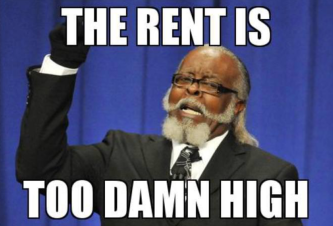
 Prop E would limit the development of new office space by tying office development projects to whether the city is meeting its affordable housing goals. It is true that the city has enjoyed an incredible employment boom (thanks, Big Tech!); however, it has not been able to build housing fast enough to accommodate all the people who are taking those jobs. As a result, a lot of these folks need to live outside the city, and all those commuters are bad for traffic congestion, transit resources, the environment, etc.. The idea behind Prop E is that we need to bring jobs and housing into a better balance – and we do that by requiring that more affordable housing be built BEFORE we build ANY new office space.
Prop E would limit the development of new office space by tying office development projects to whether the city is meeting its affordable housing goals. It is true that the city has enjoyed an incredible employment boom (thanks, Big Tech!); however, it has not been able to build housing fast enough to accommodate all the people who are taking those jobs. As a result, a lot of these folks need to live outside the city, and all those commuters are bad for traffic congestion, transit resources, the environment, etc.. The idea behind Prop E is that we need to bring jobs and housing into a better balance – and we do that by requiring that more affordable housing be built BEFORE we build ANY new office space.

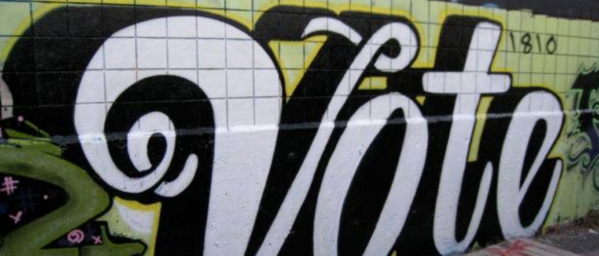
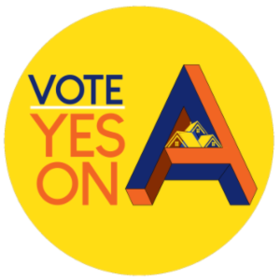

 Prop D was introduced by Supervisor Aaron Peskin, who worked with Uber and Lyft to settle on the tax rate in exchange for their support for the measure. In my day job, I work for Lyft, and I am proud to support the measure because I think public transit and traffic safety in San Francisco desperately need improvement. As a Lyft employee, I’m a *little* nervous about what the new tax will do to our business in San Francisco. But the average cost of a ride will go up by less than a dollar, so I’m hoping most Lyft and Uber users will barely notice the change. The added cost to solo rides will almost certainly push some users into shared rides (which are less expensive), which is a very good thing. Shared rides help ease congestion by making each car trip more efficient, ultimately getting more cars off the road. The most price-sensitive users will probably use transit, bikes and scooters more, and that will also help in making traffic more bearable in the city.
Prop D was introduced by Supervisor Aaron Peskin, who worked with Uber and Lyft to settle on the tax rate in exchange for their support for the measure. In my day job, I work for Lyft, and I am proud to support the measure because I think public transit and traffic safety in San Francisco desperately need improvement. As a Lyft employee, I’m a *little* nervous about what the new tax will do to our business in San Francisco. But the average cost of a ride will go up by less than a dollar, so I’m hoping most Lyft and Uber users will barely notice the change. The added cost to solo rides will almost certainly push some users into shared rides (which are less expensive), which is a very good thing. Shared rides help ease congestion by making each car trip more efficient, ultimately getting more cars off the road. The most price-sensitive users will probably use transit, bikes and scooters more, and that will also help in making traffic more bearable in the city.
 Source: SPUR
Source: SPUR

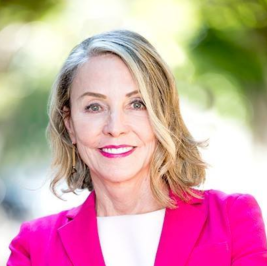 This one is fascinating – it’s a highly contested race between two candidates who are hard to distinguish politically, so the contest is boiling down to the candidates’ personalities and experience.
This one is fascinating – it’s a highly contested race between two candidates who are hard to distinguish politically, so the contest is boiling down to the candidates’ personalities and experience.
 A funny thing happened a few weeks ago – DA George Gascon surprised all of City Hall by resigning his office before the end of his term, leaving a vacancy for the Mayor to fill. Mayor Breed appointed Loftus, her endorsed candidate, causing quite a brouhaha. The Mayor was in a pickle – the DA’s office needed someone at the helm for the last 3 months of the year, and the Mayor knew appointing Loftus would be controversial. But if she didn’t appoint her, it would imply that she didn’t have enough confidence in Suzy’s ability to win. Both Loftus and Breed were criticized for the appointment by the far left, and yet it doesn’t give Suzy any advantage in this race whatsoever. It’s too late to change her ballot designation to “incumbent,” and it only gives Loftus additional work to do while running for the office. Ultimately, the appointment probably did more harm to Suzy’s campaign than good.
A funny thing happened a few weeks ago – DA George Gascon surprised all of City Hall by resigning his office before the end of his term, leaving a vacancy for the Mayor to fill. Mayor Breed appointed Loftus, her endorsed candidate, causing quite a brouhaha. The Mayor was in a pickle – the DA’s office needed someone at the helm for the last 3 months of the year, and the Mayor knew appointing Loftus would be controversial. But if she didn’t appoint her, it would imply that she didn’t have enough confidence in Suzy’s ability to win. Both Loftus and Breed were criticized for the appointment by the far left, and yet it doesn’t give Suzy any advantage in this race whatsoever. It’s too late to change her ballot designation to “incumbent,” and it only gives Loftus additional work to do while running for the office. Ultimately, the appointment probably did more harm to Suzy’s campaign than good.
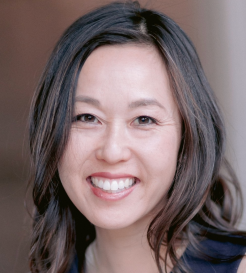 There are three candidates for this seat, but Jenny Lam is the one. She was appointed by Mayor Breed in January to replace Matt Haney who was elected to the Board of Supervisors. Her day job is Mayor Breed’s education advisor, and she previously worked at Education SuperHighway, a San Francisco nonprofit working to bring high-speed internet to classrooms nationwide. Her two challengers have little connection to education, and haven’t put together viable campaigns. Because of this, Lam has been endorsed by
There are three candidates for this seat, but Jenny Lam is the one. She was appointed by Mayor Breed in January to replace Matt Haney who was elected to the Board of Supervisors. Her day job is Mayor Breed’s education advisor, and she previously worked at Education SuperHighway, a San Francisco nonprofit working to bring high-speed internet to classrooms nationwide. Her two challengers have little connection to education, and haven’t put together viable campaigns. Because of this, Lam has been endorsed by  Ivy is unopposed, but I will still say a few nice things about her. She is a City Hall veteran, as she worked for many years as a Board of Supervisors aide to both Supervisors Norman Yee and Jane Kim. She was appointed to the College Board by Mayor Breed In 2018 to fill a vacancy. No one is running against her, at least in part because she has the chops – she was an architect of the Free City College program, and she has fought to stabilize City College and improve the education environment for the 63,000 students the college serves. I’m voting for her.
Ivy is unopposed, but I will still say a few nice things about her. She is a City Hall veteran, as she worked for many years as a Board of Supervisors aide to both Supervisors Norman Yee and Jane Kim. She was appointed to the College Board by Mayor Breed In 2018 to fill a vacancy. No one is running against her, at least in part because she has the chops – she was an architect of the Free City College program, and she has fought to stabilize City College and improve the education environment for the 63,000 students the college serves. I’m voting for her.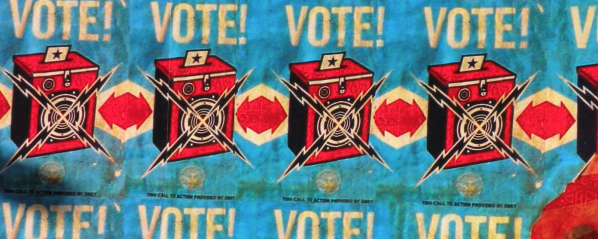
 US House (CA-12) – Nancy Pelosi
US House (CA-12) – Nancy Pelosi

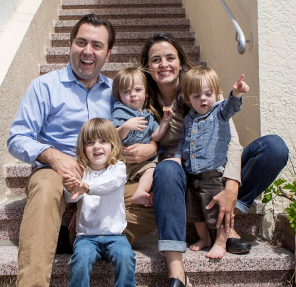




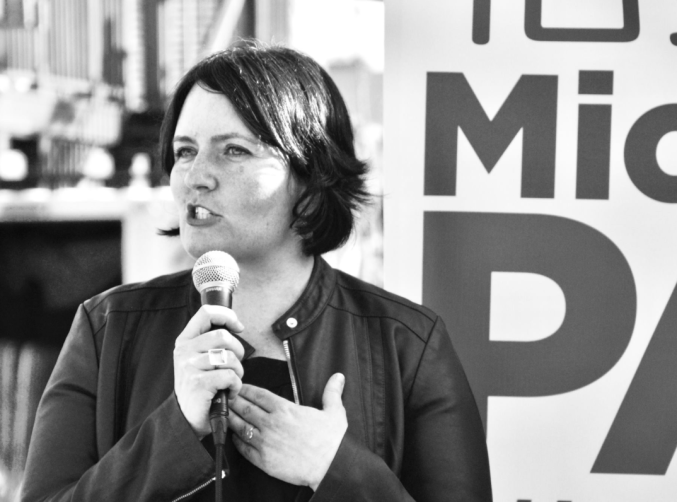
 Faauuga Moliga is a school social worker and parent. Mayor Breed appointed him to the school board in October to fill the seat of Hydra Mendoza, who moved away. Moliga is the first Pacific Islander member of the school board, representing a community impacted by high poverty and incarceration rates, and low college readiness. His campaign focuses on the opportunity gap for students of all demographics, as well as supporting the well-being of students and families through mental health services. His main endorsers are the SF Teachers Union; organized labor; Mayor London Breed; Board of Supervisors President Malia Cohen; Supervisors Mandelman, Fewer, Ronen, Safai, Peskin and Yee.
Faauuga Moliga is a school social worker and parent. Mayor Breed appointed him to the school board in October to fill the seat of Hydra Mendoza, who moved away. Moliga is the first Pacific Islander member of the school board, representing a community impacted by high poverty and incarceration rates, and low college readiness. His campaign focuses on the opportunity gap for students of all demographics, as well as supporting the well-being of students and families through mental health services. His main endorsers are the SF Teachers Union; organized labor; Mayor London Breed; Board of Supervisors President Malia Cohen; Supervisors Mandelman, Fewer, Ronen, Safai, Peskin and Yee.


 If you’ve taken a walk or bike ride along the Embarcadero, you have seen the crumbling concrete and dilapidated piers along San Francisco’s waterfront. Frankly, it’s embarrassing, and it’s also a threat to public safety. Ponder this: scientists predict that the sea level will rise three feet in the next 30 years, and that the Bay Area will see another
If you’ve taken a walk or bike ride along the Embarcadero, you have seen the crumbling concrete and dilapidated piers along San Francisco’s waterfront. Frankly, it’s embarrassing, and it’s also a threat to public safety. Ponder this: scientists predict that the sea level will rise three feet in the next 30 years, and that the Bay Area will see another  Data privacy is the hottest topic in government this year after data breaches at Facebook and other companies revealed how tech companies use consumer information. Proposition B is a non-binding resolution asking the city to set privacy standards for companies who do business in San Francisco. The idea is an appealing one, because everyone agrees that consumers should have more control over their data, and if SF – the capitol of tech – sets a high bar, the rest of the nation might follow.
Data privacy is the hottest topic in government this year after data breaches at Facebook and other companies revealed how tech companies use consumer information. Proposition B is a non-binding resolution asking the city to set privacy standards for companies who do business in San Francisco. The idea is an appealing one, because everyone agrees that consumers should have more control over their data, and if SF – the capitol of tech – sets a high bar, the rest of the nation might follow.
 It’s too much money for homelessness relative to other spending. Prop C secures $682 million for the Department of Homelessness. For comparison, that’s 3x the budget of Rec and Park ($231 million), 7x the budget of the Department of Emergency Management ($95 million), 4x the budget of Libraries ($160 million), and nearly 3x the budget of the Sheriff’s Department, which includes the jails ($249 million). Moreover, if Prop 2 (2018) on the California ballot passes, SF is poised to receive another $100 million per year for homelessness programs. Senator Scott Wiener also recently secured $30 million from the state budget for homeless youth programs. Does SF need $812 million per year for the homeless?! No.
It’s too much money for homelessness relative to other spending. Prop C secures $682 million for the Department of Homelessness. For comparison, that’s 3x the budget of Rec and Park ($231 million), 7x the budget of the Department of Emergency Management ($95 million), 4x the budget of Libraries ($160 million), and nearly 3x the budget of the Sheriff’s Department, which includes the jails ($249 million). Moreover, if Prop 2 (2018) on the California ballot passes, SF is poised to receive another $100 million per year for homelessness programs. Senator Scott Wiener also recently secured $30 million from the state budget for homeless youth programs. Does SF need $812 million per year for the homeless?! No. Beginning in 2021, the money collected from the tax would go into the general fund, so the city can spend it however it wishes. The city controller predicts proceeds of $2 million to $4 million at first, growing to as much as $16 million in three years.
Beginning in 2021, the money collected from the tax would go into the general fund, so the city can spend it however it wishes. The city controller predicts proceeds of $2 million to $4 million at first, growing to as much as $16 million in three years.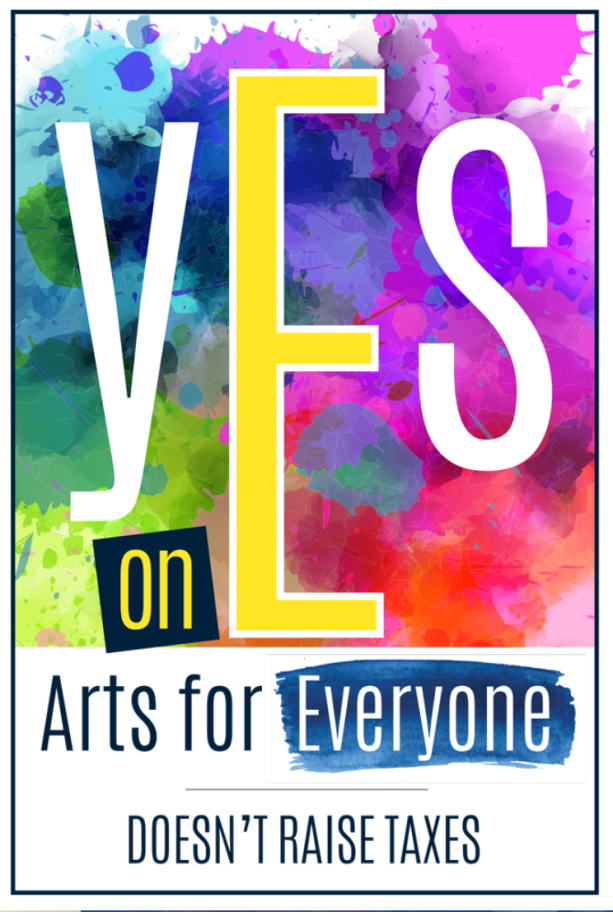 San Francisco charges a 14% bed tax on hotels, B&Bs, and Airbnb hosts, and it brings in about in $370 million per year. Prop E would take an 8% slice of this tax revenue and dedicate it to arts and cultural organizations and projects in the city, boosting the city’s arts budget from $22 million per year (2018) to $35 million by 2022. It requires a two-thirds vote to pass.
San Francisco charges a 14% bed tax on hotels, B&Bs, and Airbnb hosts, and it brings in about in $370 million per year. Prop E would take an 8% slice of this tax revenue and dedicate it to arts and cultural organizations and projects in the city, boosting the city’s arts budget from $22 million per year (2018) to $35 million by 2022. It requires a two-thirds vote to pass.


 Former State Senator Mark Leno is a strong candidate for Mayor, as he was a solid legislator, both at the Board of Supervisors and in the State Senate. However, I have been profoundly disappointed in the negativity coming out of his campaign in recent months. I have known Mark for years, and I have been surprised to see how low he has been willing to stoop when the polls started showing him losing the race. If you’ve seen the ads, you know what I’m talking about.
Former State Senator Mark Leno is a strong candidate for Mayor, as he was a solid legislator, both at the Board of Supervisors and in the State Senate. However, I have been profoundly disappointed in the negativity coming out of his campaign in recent months. I have known Mark for years, and I have been surprised to see how low he has been willing to stoop when the polls started showing him losing the race. If you’ve seen the ads, you know what I’m talking about.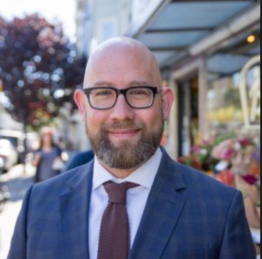

 If you are a renter in San Francisco, you know what it feels like to have housing insecurity. In the last decade, the volatility of the housing market has been terrifying for many of us. Prop F promises an important safeguard against unfair evictions: It will require the city to provide legal representation for any residential tenant facing an eviction lawsuit. It won’t solve the housing crisis, but it will prevent some folks who can’t afford an attorney from losing their homes.
If you are a renter in San Francisco, you know what it feels like to have housing insecurity. In the last decade, the volatility of the housing market has been terrifying for many of us. Prop F promises an important safeguard against unfair evictions: It will require the city to provide legal representation for any residential tenant facing an eviction lawsuit. It won’t solve the housing crisis, but it will prevent some folks who can’t afford an attorney from losing their homes. This one is confusing, so bear with me. Prop H was put on the ballot by the police officers’ union because it was frustrated by the city’s unwillingness to enact a policy allowing cops to use tasers. Since then, the Police Commission did enact a taser policy, thus rendering Prop H moot. The proponents of Prop H still want it to pass, though, because they want it to be codified into law that can only be repealed by the voters, which I think is a terrible idea. This is exactly the kind of law that needs to be decided by representatives in city government (i.e., police commission or the board of supervisors), so that they can amend it or repeal it if tasers turn out to be a bad idea (which I personally think they are). If Prop H passes, it will undermine the ability of the Police Department and the Commission to set law enforcement policy. Just about everybody agrees that Prop H is terrible, including all of the major candidates for Mayor, the Police Chief (!!), the District Attorney AND the Public Defender, the ACLU and every local newspaper.
This one is confusing, so bear with me. Prop H was put on the ballot by the police officers’ union because it was frustrated by the city’s unwillingness to enact a policy allowing cops to use tasers. Since then, the Police Commission did enact a taser policy, thus rendering Prop H moot. The proponents of Prop H still want it to pass, though, because they want it to be codified into law that can only be repealed by the voters, which I think is a terrible idea. This is exactly the kind of law that needs to be decided by representatives in city government (i.e., police commission or the board of supervisors), so that they can amend it or repeal it if tasers turn out to be a bad idea (which I personally think they are). If Prop H passes, it will undermine the ability of the Police Department and the Commission to set law enforcement policy. Just about everybody agrees that Prop H is terrible, including all of the major candidates for Mayor, the Police Chief (!!), the District Attorney AND the Public Defender, the ACLU and every local newspaper.
 And there are some Very Important Decisions to be made, such as eliminating the death penalty, decriminalizing marijuana use, and creating a new citywide elected position in San Francisco. California is poised to elect and African- and Indian-American woman to the US Senate (Go Kamala!), and the city looks to the voters (again!) to decide what to do about its housing and homelessness problems.
And there are some Very Important Decisions to be made, such as eliminating the death penalty, decriminalizing marijuana use, and creating a new citywide elected position in San Francisco. California is poised to elect and African- and Indian-American woman to the US Senate (Go Kamala!), and the city looks to the voters (again!) to decide what to do about its housing and homelessness problems.

